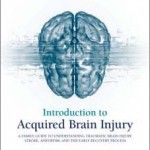As a patient becomes more responsive, the Rancho Scale* is used to measure the patient’s level of awareness based on their behavior and interaction with their environment. It measures the patients cognitive skills, that is their thinking and memory skills. Cognitive skills include:
• being able to pay attention
• being aware of your surroundings
• following through on decisions
• planning, organizing
• awareness of problems, judgement, reasoning, solving problems
Memory skills include the ability to remember things both before and after the brain injury. Depending on the severity of your loved one’s brain injury, some or all of these skills will no longer be the same.
The Rancho Scale is a common tool used to evaluate and follow the 10 levels someone might progress through during both recovery and rehabilitation. Keep in mind the descriptions in the following table are general and practical, but not “carved in stone.”
Also, there is no way of knowing how fast someone will recover and make progress through the stages or when progress will stop and even seem to reverse. People with severe injuries may go back and forth between several levels. Others progress through all levels. It is important to know that progressing through all levels does not mean they have fully recovered and that they are the same person they were before the injury. (Brain anatomy and function.)
If Your Loved One is Doing This
Here’s How You Can Help
Rancho Scale Level I (No response)
Does not respond to touch, noise, pain, touch, or sights.
Their eyes are usually closed.
• Stimulate their senses by offering different smells (their favorite foods, perfume, flowers); sounds (their favorite music, voices of special people); things to look at (a picture of a familiar person); or things to touch (a favorite blanket, stuffed toy, or piece of clothing—things with different textures).
• It is very important to balance periods of stimulation with periods of rest.
Rancho Scale Level II (Generalized response)
Responds inconsistently to sounds, sights, movement, touch or pain. The response may be non-specific or non purposeful. Their eyes may be open sometimes.
• Talk to them in your normal tone of voice.
• Tell them the day, date, time, where they are, and what has happened to them.
• Talk to them about family members and friends or about things that are happening at their school or workplace.
• Assume they can hear you and be careful about what you say about them.
• It is very important to balance periods of stimulation with periods of rest.
Rancho Scale Level III (Localized response)
Responds more specifically to sights, sounds, touch, or pain, but does not respond in the same way every time and may respond slowly. For example, they may pull their hand away when you pinch their finger or blink when the lights are turned on. They may begin responding to simple commands such as “squeeze my hand” or “open your eyes.” They may begin to recognize family and friends.
Ask them to do simple tasks like squeeze your hand or open their eyes.
• At this level of recovery it is “normal” for them to respond the wrong way, respond slowly, or not respond at all. Give them plenty of time to respond. Don’t get upset if the response is incorrect.
• Limit the number of visitors to 2-3 at each visit and for the day.
• Keep your voice in a low, calm tone. Keep the room quiet and calm.
• Be careful not to overdo it with talking or other noises.
• It is very important to balance periods of stimulation with periods of rest.
• Assume they can hear and understand you and be careful about what you say about them.
Rancho Scale Level IV (Confused and agitated)
Responds, but is confused, is very active, and may be aggressive. Some of their behaviors may include hitting, biting, cursing, or thrashing around in the bed/chair. Their attention span is very short. They may not understand that you or others are trying to help them and may become very uncooperative. These actions are a result of the brain injury and are not being done on purpose. Your loved one may have to be restrained so that they don’t hurt themselves. They may be able to so simple tasks like feeding or dressing them selves with help.
• Provide a calm, quiet environment. Cut down on extra noises from TV, music, or talking.
• Limit the number of visitors to 2-3 at each visit and for the day.
• Talk to them in short, simple sentences.
• Tell them often of the day, date, time, where they are, and what has happened to them.
• Do not argue with them or try to make them do a task.
• Do not take their bad behavior personally.
• Tell them that they are safe.
• Decorate the room with familiar objects from home (photos, blankets, toys). Do not bring sharp objects or things that could be dangerous to someone who is confused.
• Give them plenty of time to rest.
Rancho Scale Level V (Confused and inappropriate)
Responds to you; is confused, but is not agitated. They are easily distracted, have poor memory, and can only pay attention for a few minutes. It’s hard for them to start tasks on their own or remember how to do everyday activities such as dressing or bathing. They may become very restless when tired. They may not know where they are or what happened. They may make things to fill in the memory gaps.
• Cut down on outside stimulation, such as extra noises from the TV or a radio.
• Tell them often the day, date, time, where they are, and what has happened to them.
• Help them begin tasks. You may need to repeat commands often, they may not remember what you have told them.
• Ask them to do simple tasks like brush their teeth or get dressed. Do not ask them to do tasks that require a lot of thinking.
• Use memory aids suggested by the health care team.
• Give short, simple answers.
• Keep a daily schedule for them. Structure is very important. Help them organize and get started with activities.
• Give them plenty of time to rest. Limit the number of visitors to 2-3 at each visit and for the day.
Rancho Scale Level VI (Confused and appropriate)
Responds, but is somewhat confused, inconsistently knows day, time, and where he is. Memory is better but they may forget details of a conversation. Can do daily activities with help but may have trouble thinking when it’s noisy or the task has many steps. Requires “helpful hints.” Can pay attention longer if not in a stressful, noisy environment. He may forget what you talked about if you visited earlier in the day. Becomes confused with changes in routine.
• Cut down on outside stimulation, such as extra noises from the TV or a radio.
• Tell them often the day, date, time, where the are, and what has happened to them.
• Help them begin tasks. You may need to repeat commands often.
• Ask them to do simple tasks like brush their teeth or get dressed. Do not ask them to do tasks that require a lot of thinking or has a lot of steps.
• Use memory aids suggested by the health care team.
• Give short, simple answers.
• Keep a daily schedule for them. Structure is very important. Encourage them to participate in all therapy; he may not understand the extent of his injury or why he is doing therapy.
• Give them plenty of time to rest.
Rancho Scale Level VII (Automatic and appropriate)
Responds well. Performs activities in a structured, non-stressful environment in a “robot-like” way. Can do tasks but does them slower than before the injury. Still needs watching for safety reasons. Has difficulty in new situations and gets frustrated easily. Lacks insight into memory problems and may act without thinking. May seem rigid in their thinking or what they choose to do. They may expect to return to their previous lifestyle or work not realizing how the injury has affected them.
• Talk about things that interest them. Bring favorite objects or photos.
• Begin reducing the amount of structure as your loved one is able to tolerate.
• Add a few more complex tasks.
• Encourage them to “solve problems.” For example, ask “What would you do if…”
• Use your normal tone of voice. Treat them as an adult even though they may need supervision or help.
• Get them to use memory aids such as calendars, planners, or taking notes.
• Encourage him to continue any therapies as he is still making progress.
Rancho Scale Level VIII (Purposeful and appropriate)
Responds well. They have more insight into their condition and try to compensate for memory problems. They are more flexible in thinking, and may begin to come up with solutions. Begin to learn new things easier, but at a slower pace. They are more independent and may not need supervision; however, may still get frustrated in difficult situations and need help. They may show poor judgement in new situations and need guidance with making decisions. They may have thinking problems that only someone that knew them prior to the injury would recognize.
• Help them solve problems and set goals they can reach. Offer your help when they need it. Respect their opinions.
• Talk with them as an adult, you don’t need to talk down to them or use simple words and sentences. Don’t criticize.
• Encourage leisure activities that are safe and not stressful.
• Encourage them to get enough sleep and rest.
• Get them to use memory aids such as calendars, planners, or taking notes.
• Encourage him to be as independent as possible.
• Encourage him to continue any therapies as he is still making progress.
*Note: There are 10 levels to the Rancho Los Amigos Cognitive Scale. The table above addresses the most commonly seen levels in the early stages of a moderate to severe injury. Before taking the action steps outlined above, get permission from your loved one’s physician or health care team.
 Brain Injury: A guide for family and friends
Brain Injury: A guide for family and friends
Table of Contents
• What is a Brain Injury?
• How Bad Is It?
• How the Brain Functions
• Common Problems During Early Recovery
• The Intensive Care Unit (ICU)
• Understanding Coma
• How Does an Injured Brain Heal?
• How You Can Help With Recovery
• Where Will the Journey Go From Here?
• How Will I Ever Get Through This?
• Where to Go for Help
• Books for Families Coping With Brain Injury
